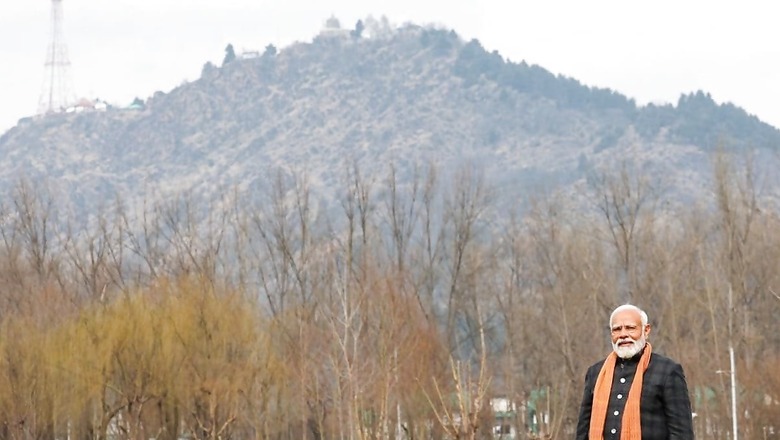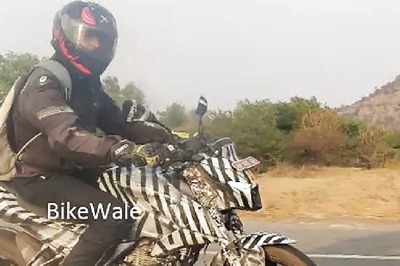
views
Frank Furedi, the Hungarian-Canadian media commentator and academic and emeritus professor of sociology at the University of Kent, in his latest article, ‘The Fear of Populism Expresses The Elite’s Disdain For Democracy’, writes an unforgettable line: Populism is democracy in action. Furedi goes on to explain that democracy helps people find their voice.
“Throughout most of history, the political classes had little sympathy for people attempting to find their voice. Democracy as an ideal barely survived the ravages of centuries of political hostility. Even in those circumstances where societies acclaimed its virtues, democracy served as an ideal that was very rarely allowed to flourish. Though there were genuine attempts to construct a system of representation through which popular consent could be brought into a close alignment with the direction of travel of executive power, the realisation of the ideal of democracy has always faced formidable obstacles.”
A lot of the news from Kashmir needs to be read in the context of Furedi’s analysis. The political class of Kashmir was always disconnected from the ordinary common people throughout the seven decades of post-Independence. All that the communal, yet professing secularism, National Conference party did was use Islam as a weapon to keep grabbing power and rallying the people against the Indian state. A lot of misinformation, and disinformation campaigns were unleashed and the people grew a sentimental attachment to the hollowed-out Article 370.
If the Srinagar-elect Aga Rouhullah’s performance last week in Parliament is anything to go by, the NC is up to its tricks yet again. But this time it was amusing to see the political class get exposed live and demonstrate to mainland Indians how they’ve kept an entire population confused about their nationalist identity using the special status, tied up to the Islamist Muslim supremacy theme since the time there was no Internet or social media. For a change the political class, with Engineer Rashid given the go-ahead by the NIA for oath-taking on June 5, will be forced to deal with the Indians they hate through dialogue and debate rather than using the crutch of the AK-47s of terror groups.
But the government will have to step up. The Indian Railways’ official tweet couldn’t distinguish between the Jammu division and the Kashmir division, attributing the Chenab railway bridge to Kashmir Valley instead of Jammu in its promotional tweet. Therefore, it is still frustrating that the mainstream media runs after bytes from the political class without trying to listen to what the silent majority terrorised by the AK-47 for decades and now the political class’ favourite “Islam khatre mein hai” has to say. The Kashmiris have lots of sentiments attached to the hollow Article because of the dynasty politicians’ ambiguous stance and soft separatism.
That the leaders of most political parties in Kashmir have welcomed PM Modi’s announcement for assembly elections in J&K and restoration of statehood is an ominous sign for us that the intifada factory is getting emboldened once more. The recent election results in the Union Territory proved that the people were tired of dynast politicians and wanted fresh faces. It also showed that the people in former districts which had no-go areas where the Indian Army wouldn’t dare to tread in the 1990s are still radicalised, electing an anti-India and anti-Hindu activist-lawyer.
But India is also a liberal, secular democracy (the secular meaning ‘all religions treated as equal’ rather than the Western separation of the church from the state kind) and is morally obliged to hold free and fair elections in all its states and union territories. The 2024 Lok Sabha elections were not a mean feat considering the 543 constituencies and how they were handled with no major allegations of booth capturing, poll rigging or EVM tampering; as we Kashmiris are habitual of hearing of the 1987 rigged elections that unleashed so much for us. But in a war zone that has just finished a thirty-year proxy war with Pakistan and still shows no signs of abating, is it a wise decision to treat it as a normal zone just five years after the abrogation of Article 370?
Remember Engineer Rashid has been elected from the Langate, Kupwara constituency, one of the deadliest districts in the Islamic jihad, orchestrated and sponsored by Pakistan exploiting its proximity to the LoC. Engineer Rashid is also the controversial activist who butchered a cow in his area just to make a point in the ‘beef politics’ going on in the nation a few years back by hosting a ‘beef party’. In addition to this, he is also in jail on terror connection charges under the Unlawful Activities (Prevention) Act, which garnered a sympathy vote due to his two sons campaigning for months for their father’s release before voting day.
The abrogation itself has not gone down well with the radical elements in Kashmiri society as well as the moderate ones who exploit the jihadi elements for their agenda of Muslim supremacy and Islamism (radical political Islam). It has also put a dent in the agenda of Kashmiri politicians who are there for looting and nepotism from the state, keeping the conflict industry alive and blackmailing New Delhi with agitations and unrest on the streets and towns of Kashmir if the economic doleouts are not given from time to time. The Dulat Doctrine catered to this tactic, never listening to the dissenters of aazadi and time and again practising statecraft that was detrimental to Indian nationalists in the Valley. They are still doing the same thing.
If the reality check of the Lok Sabha elections is something the current government is ready to reflect upon, then they should not announce assembly elections in the Valley or restoration of statehood because it will mean that the snakes in the political arena of Kashmir get their power back and the conflict entrepreneurs will get a boost. The infiltration hasn’t stopped yet and Pakistan is still pursuing its “bleed India with a thousand cuts policy”, the attacks in the Jammu region last month are proof of this. Coupled with the soft separatism of the dynast politicians, even the ones who aligned themselves with the BJP, the Kashmir region cannot be treated as something that has come out of an Islamic jihad. It takes decades if not centuries to change attitudes and the Islamism virus is such that does not go easily. Examples are Mustafa Kemal Ataturk’s Turkey threatened by Sultan Erdogan’s Caliphate approach, and Gamal Nasser’s Egypt today, a cesspool of Islamist leftovers of the Muslim Brotherhood of Syed Qutb.
Kashmir still needs to adjust to a parliamentary democracy, the reality that there is going to be no merger with Pakistan, that the Kashmiri Pandits have to be rehabilitated back at any cost, that the Article is gone and the ambiguity about and Indic identity that it brought within itself and was exploited by the grandchildren of the ones who insisted it be kept in the Constitution will take at least a generation to sink in. New Delhi seems to be getting ready to experiment with a Dulat Doctrine 2.0 without realising its cost on the silent majority that is happy with the way things are. The LG administration and its focus on infrastructure development and work ethics have given the people a breathing space, caught as they were between the Islamist jihadis and the moderate dynastic politicians’ soft separatism. They would like it to continue so for a couple of years more.
The silent majority knows the rising signs of Islamism and can see the insidious rise of the Intifada factory again after Engineer Rashid’s win. If GoI does not want another ‘tehreek’ in the next 70 years, it needs to learn to listen to the silence of the silent majority above the ruckus of the political class and their paid supporters promised the “special status”.
The author is a writer and an educationist from Srinagar. Views expressed in the above piece are personal and solely those of the author. They do not necessarily reflect News18’s views.

















Comments
0 comment